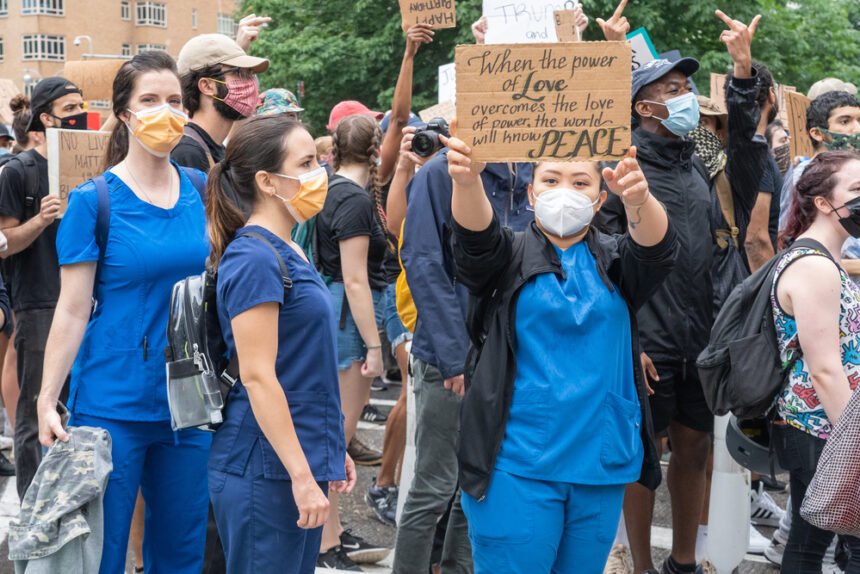Whether you?re a passionate social justice ally looking to learn more and do your part or you?re a person of color looking to learn more about the current systems in place, it can be a lot to realize the state of racial disparities specifically related to maternal healthcare. Specifically, maternal healthcare and other forms of feminine healthcare experience some of the greatest rates of racial inequality specifically specifically because of the women and queer people who need access to those forms of care. Racial issues can cause serious health issues for those affected. Black women are one of the most underserved demographics in the country, and it?s an issue that needs to be addressed.
While racial disparity in maternal healthcare is a complex issue in need of dismantling, it?s absolutely possible for everyone to understand and do their part in dismantling those systems, which rely on patriarchy, white supremacy, homophobia, ableism, classism and other forms of marginalization. When we do the work to understand the greater need and the necessity for dismantling those systems, people will be able to access the care they need at a much greater rate. So here is why we need to address racial disparity in maternal healthcare.
Racial Disparities in Healthcare
There are layers when it comes to any form of marginalized system of inequality, and maternal healthcare is no different. Specifically, we can?t discuss the racial disparity in maternal healthcare without discussing the racial disparity in healthcare overal. On average, people of color receive lower quality of care than white people, even with the same diagnosis. Not only this, but studies and meta analyses report that morbidity and mortality rates tend to be higher among people of color.
Misogyny
Another piece of the puzzle when it comes to the racial disparity in maternal healthcare is the misogyny that often permeates healthcare spaces. Specifically, the fact that women are less likely to be believed, listened to and taken seriously about their pain and physical sensations than men. However, the demographic that experiences the most implicit bias in healthcare is women of color ? most specifically, black women. Overall, doctors are less likely to effectively treat women and people of color, specifically leaving women of color at a disadvantage. This issue can lead to real and serious consequences, as the pregnancy related mortality rate for women of color is anywhere between three and five times higher than it is for white women.
Socioeconomic Inequality
In the United States, income and socioeconomic status play large roles in the kinds of care people have access to. And when the income inequality disproportionately impacts women and people of color, that means that women of color routinely don?t have access to the care they need.
The Impact of Private Healthcare
Unfortunately, the reasoning behind the reliance of socioeconomic status to provide people with proper care comes from the privatization of healthcare in the United States. While income inequality and the systems of racism that play into it need to be addressed, the primary fact is that nobody should have to rely on their job and their income in order to have access to healthcare, which is a basic human right. A universal healthcare system could rectify a lot of the inequality, as much of the racial disparity comes from the insurance gap. While 13% of white people are uninsured in the United States, that number rises to 33% for Latinx individuals, 20% for Black individuals, 32% for Indigenous people and 17% for Asian individuals.
Specifically, a lot of the action that needs to be taken in protecting women of color in maternal healthcare has to do with providing them that healthcare in the first place in cases where they may not have been able to access it before. For example, Senate Bill 359 would expand Medicaid coverage for postpartum women from 60 days to one year. Other bills that extend care to include things like doula services and care for postpartum depression can also make a huge difference, especially in communities that might not traditionally have access to those services.
What You Can Do
If you?re an expectant mother, person of color or simply a passionate advocate for equal opportunity healthcare, there are a few things you can do in your life to support those who need it. Voting in your local and state elections for local policy changes is always a great start. Additionally, donating or volunteering for organizations like Planned Parenthood that provide health services to underserved communities and supporting bills like Senate Bill 359 and others like it can make a huge difference.
Addressing Racial Disparities in Maternal Healthcare
The racial disparity and misogyny so often present in healthcare becomes especially apparent when we take a look at maternal healthcare. While the racial disparities in maternal healthcare come as a result of a variety of systems overlapping, there is hope for change in the future.

